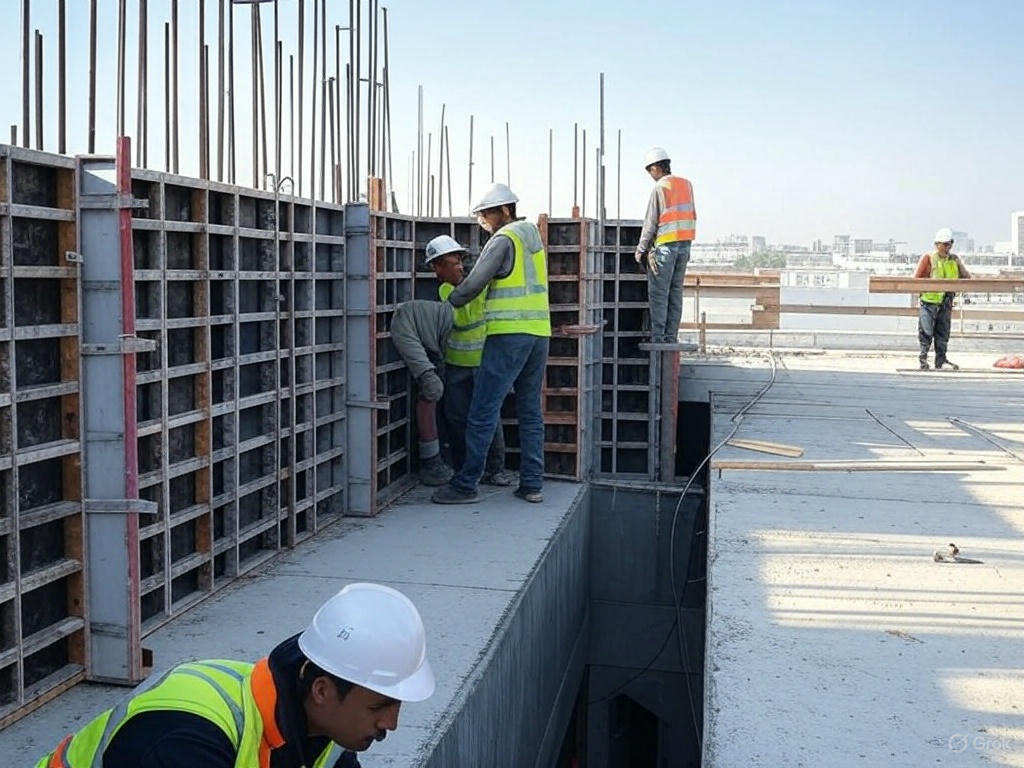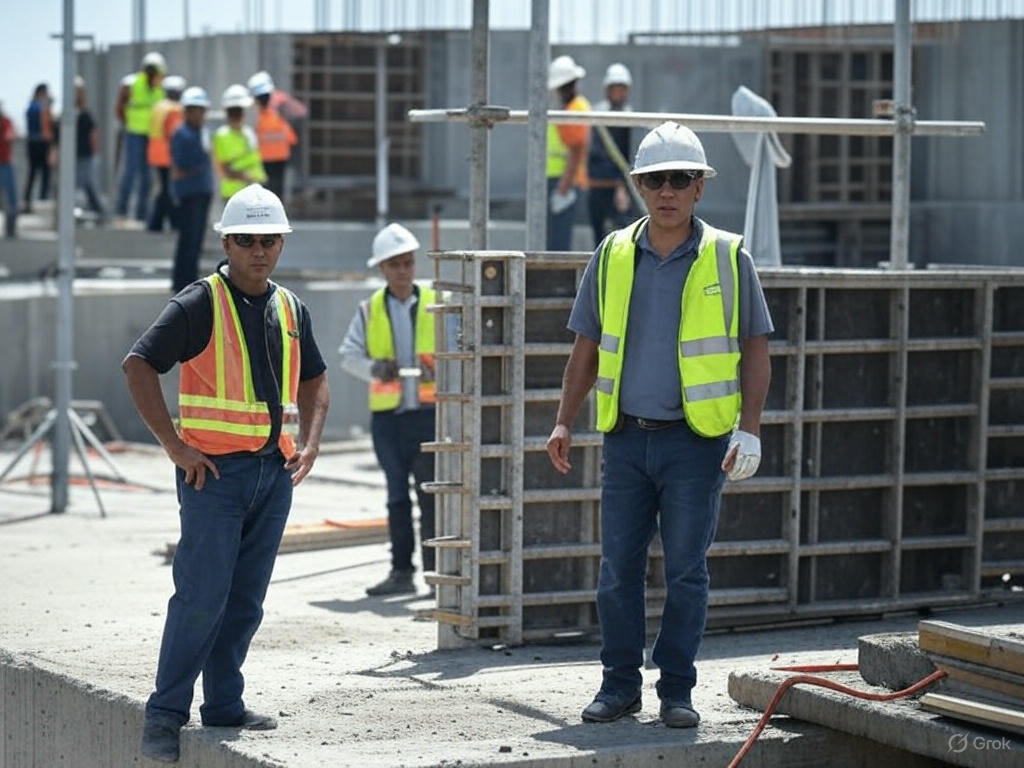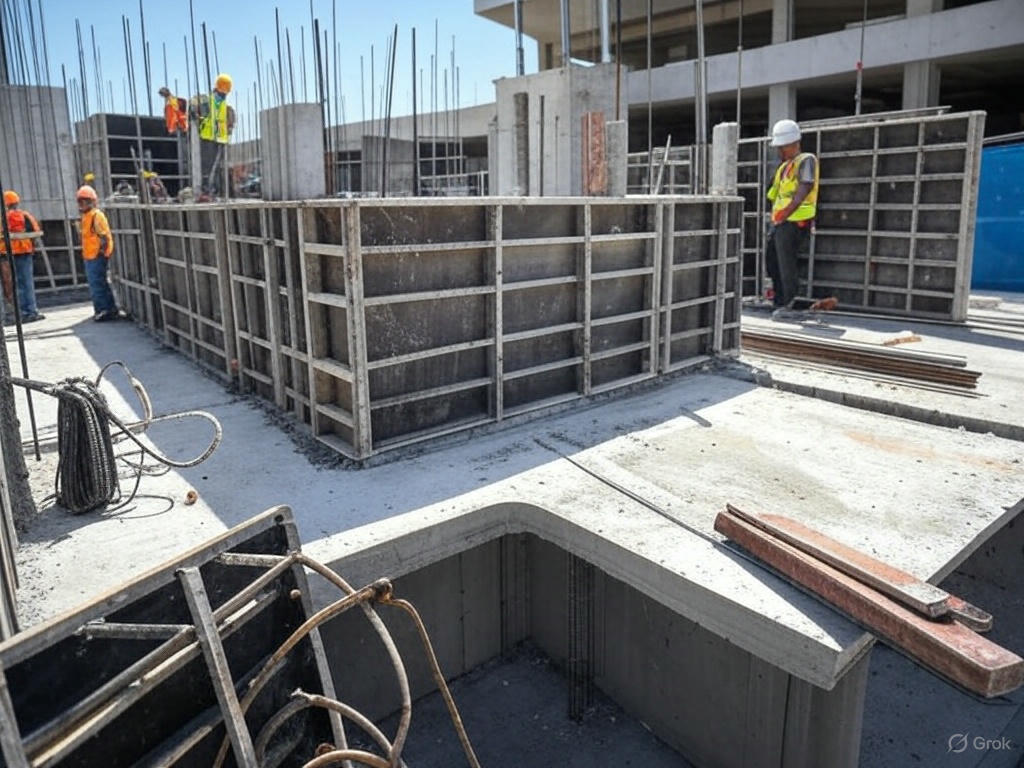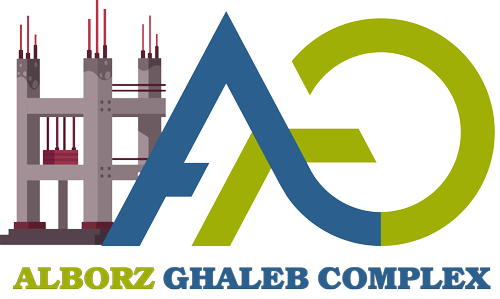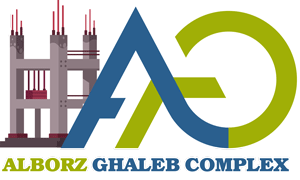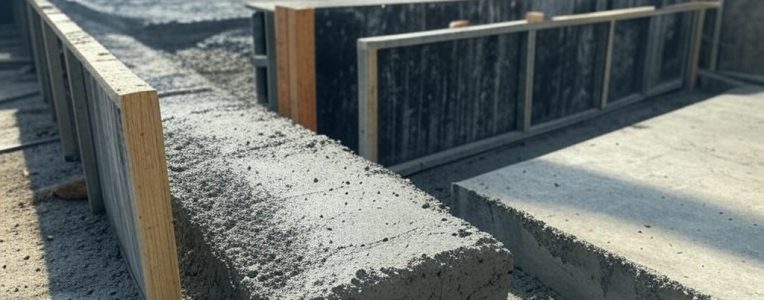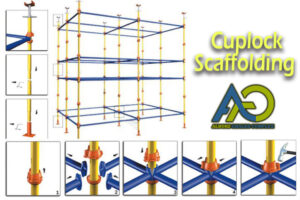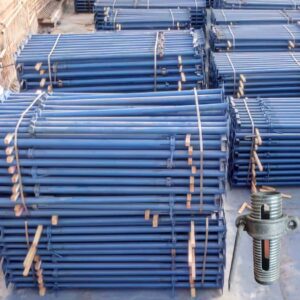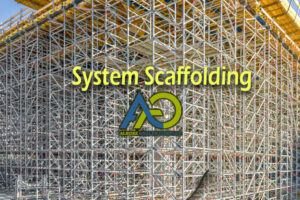In the ever-evolving world of construction, efficiency, durability, and cost-effectiveness are key drivers of success. One of the most critical components in achieving these goals is the use of concrete formwork. Whether you’re constructing a towering skyscraper, a sturdy bridge, or a residential building, formwork plays an indispensable role in shaping concrete into the desired structures. But what exactly makes concrete formwork so valuable in modern construction? In this article, we’ll explore the top benefits of using concrete formwork, drawing insights from the top 10 Google search results and offering practical examples. We’ll also naturally weave in links to relevant resources from Alborz Ghaleb, a trusted name in formwork solutions, to help you dive deeper into this topic.
What is Concrete Formwork?
Before diving into the benefits, let’s clarify what concrete formwork is. Simply put, concrete formwork is a temporary or permanent mold into which fresh concrete is poured to harden into the desired shape. It provides the structure and support needed until the concrete gains sufficient strength. Formwork comes in various types, such as plastic, metal, and modular systems, each offering unique advantages depending on the project requirements. For a detailed overview, check out Alborz Ghaleb’s concrete formwork page, which explains the essentials of this construction tool.
Now, let’s explore the top benefits of using concrete formwork in modern construction.
1. Enhanced Structural Precision
One of the standout advantages of concrete formwork is its ability to ensure precise shaping of concrete structures. Modern construction demands accuracy, and formwork delivers just that by creating molds that match exact design specifications. Whether you’re using modular metal formwork or plastic systems, the result is a consistent and uniform finish that meets architectural standards. This precision reduces the need for costly rework and ensures that every beam, column, or wall aligns perfectly with the project blueprint.
Image Suggestion: A high-resolution photo of a perfectly aligned concrete wall being formed with modular metal formwork, showcasing clean edges and symmetry.
2. Increased Construction Speed
Time is money in construction, and concrete formwork significantly accelerates the building process. Systems like plastic formwork are lightweight and easy to assemble, allowing workers to set up and dismantle molds quickly. Similarly, modular metal formwork offers reusable panels that streamline repetitive tasks, such as forming multiple columns or floors. According to insights from top-ranking sites like iromart.com and afzir.com, this speed doesn’t compromise quality, making formwork a game-changer for tight project deadlines.
3. Cost-Effectiveness Over Time
While the initial investment in high-quality formwork might seem steep, the long-term savings are undeniable. Durable options like metal formwork, as highlighted on Alborz Ghaleb’s modular metal formwork page, can be reused multiple times without losing structural integrity. Plastic formwork, on the other hand, is affordable and resistant to wear, reducing replacement costs. Top sites like modernsazan.com emphasize that efficient formwork systems minimize labor and material waste, further driving down expenses.
Image Suggestion: A comparison image showing a stack of reusable metal formwork panels next to a pile of discarded traditional wooden molds, emphasizing sustainability and cost savings.
4. Improved Safety on Construction Sites
Safety is a top priority in modern construction, and concrete formwork contributes significantly to creating a secure working environment. Well-designed formwork systems, such as those offered by Alborz Ghaleb, include features like sturdy bracing and easy-to-handle components that reduce the risk of accidents. For instance, lightweight plastic formwork minimizes the physical strain on workers, while modular metal systems provide robust support against concrete pressure. Sites like clinicbeton.com note that proper formwork installation by skilled professionals enhances site safety.
5. Versatility Across Projects
Concrete formwork’s adaptability makes it suitable for a wide range of construction projects. From small residential builds to large-scale infrastructure like bridges and tunnels, formwork can be customized to fit any design. Plastic formwork systems excel in projects requiring intricate shapes, thanks to their flexibility, while metal formwork shines in heavy-duty applications. This versatility, as discussed on sites like keyhansaze.ir and medhatwood.com, ensures that contractors can rely on formwork for virtually any job.
6. Superior Surface Finish
A smooth, aesthetically pleasing surface is often a requirement in modern construction, especially for exposed concrete elements. Formwork systems, particularly those made of plastic or metal, deliver a high-quality finish that reduces the need for additional plastering or polishing. For example, Alborz Ghaleb’s plastic formwork prevents concrete from sticking to the mold, resulting in a clean, professional look. This benefit, echoed by tanhapoulad.com, enhances both the visual appeal and durability of the structure.
Image Suggestion: A close-up shot of a freshly demolded concrete surface with a flawless finish, highlighting the quality achieved with modern formwork.
7. Durability and Longevity
Concrete structures owe much of their strength to the formwork used during construction. High-quality formwork ensures that concrete cures evenly and achieves maximum strength. Metal formwork, as detailed on Alborz Ghaleb’s modular metal page, withstands the pressure of wet concrete without warping, ensuring long-lasting results. Top-ranking sources like sgmedhat.com confirm that durable formwork translates to resilient buildings that stand the test of time.
8. Eco-Friendly Construction
Sustainability is a growing concern in the construction industry, and concrete formwork supports greener building practices. Reusable formwork systems reduce the demand for single-use materials like timber, cutting down on waste. Plastic formwork, for instance, is recyclable and requires less energy to produce than traditional alternatives. By integrating eco-friendly options from providers like Alborz Ghaleb, contractors can lower their environmental footprint—a point reinforced by shahrebeton.com.
9. Reduced Maintenance Needs
Structures built with proper formwork require less maintenance over time. The precise molding process minimizes cracks and imperfections, which are common causes of deterioration. As noted by persiansaze.com, investing in reliable formwork upfront saves money on repairs down the line. Whether you opt for plastic or metal systems, the result is a low-maintenance building that retains its integrity for decades.
10. Support for Complex Designs
Modern architecture often features bold, unconventional designs that challenge traditional construction methods. Concrete formwork rises to the occasion by enabling the creation of complex shapes and curves. Plastic formwork systems are particularly adept at handling intricate molds, while modular metal formwork supports large-scale, innovative structures. This flexibility, highlighted by omranmarket.com, empowers architects and engineers to push creative boundaries without sacrificing functionality.
Why Choose Alborz Ghaleb for Your Formwork Needs?
When it comes to selecting the right formwork, quality matters. Alborz Ghaleb offers a range of solutions, from plastic formwork systems to modular metal formwork, designed to meet diverse project demands. Their products combine durability, ease of use, and cost-efficiency, making them a top choice for contractors worldwide.
Conclusion
Concrete formwork is more than just a construction tool—it’s a cornerstone of modern building practices. From speeding up projects and cutting costs to enhancing safety and supporting innovative designs, its benefits are transformative. By choosing the right system, such as those offered by Alborz Ghaleb, you can elevate the quality and efficiency of your next project. Ready to explore your options? Dive into the world of formwork and see how it can shape your success.
